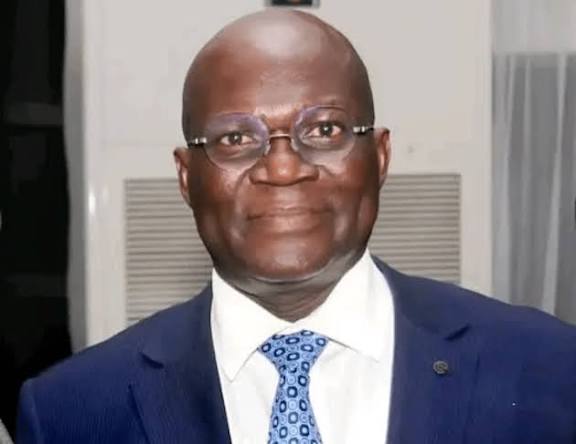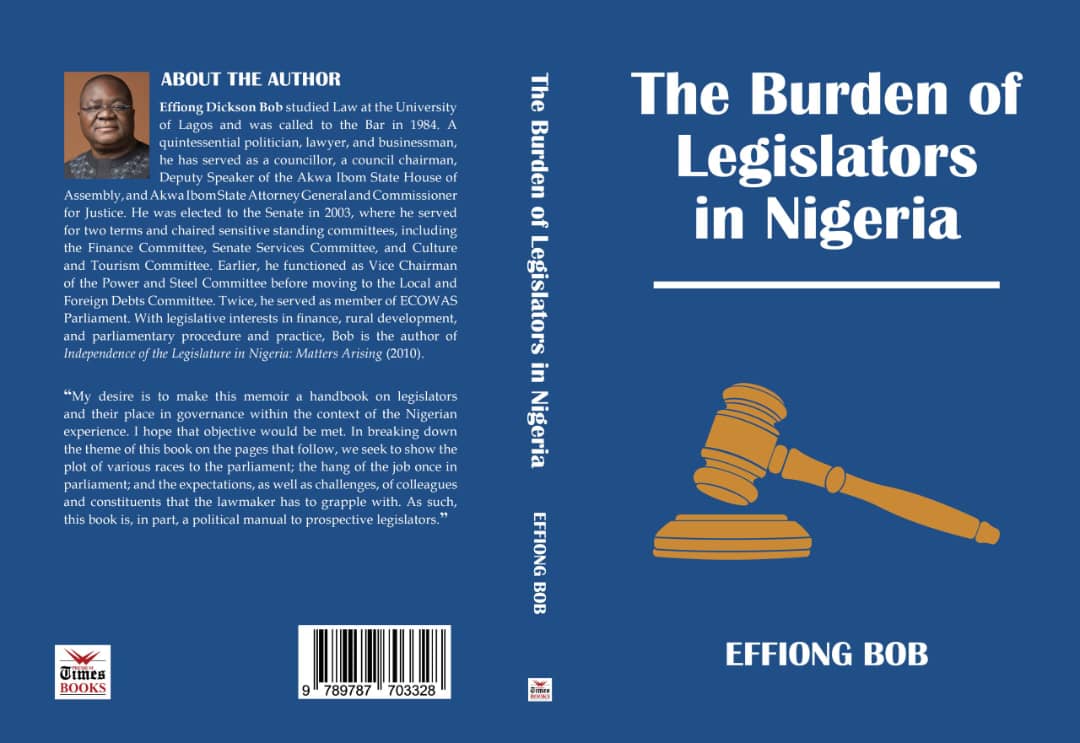Book Title: Out-of-School Children and Other Stories
Author: Oluwatosin Akinrinde
Publisher: Academic Publishing Centre, University of Lagos (UNILAG)
Year of Publication: 2025
Reviewer: Ifeoma Odinye, Associate Professor of English Literature, Nnamdi Azikiwe University [UNIZIK] & Deputy Director, Centre for Gender Studies (CGS), Nnamdi Azikiwe University (UNIZIK)
Reviewer’s Email Address: [email protected]; [email protected]
Out-Of-School Children and Other Stories is a collection of short stories written by Oluwatosin Akinrinde, detailing a haunting chronicle of survival and displacement. The stories in this collection create narrative spaces capable of igniting vicious mental stress against the backdrop of misery, despair, hunger, violence, chaos and squalor. The exploration of notable experiences – both of children and adults is mostly captured in core layman’s Pidgin language, which provides an appropriate medium that reveals the reality of the most vulnerable in Nigeria.
With a critical voice, the author plunges into Nigeria’s fictional space, wrapped in a deep social commitment and an aura of verisimilitude. These inexhaustible narratives are replete with intentional conspiracy, soulful annoyance or discomfort that tramples on the sensitivities of people. Hence, the need to decry societal ills by launching intentional fictional stories as conventional critical arrows. The title of the collection, Out-of-School Children and Other Stories, makes a cogent demand on the critical state of a nation that lacks direct immersion with engrossing trivialities. Significantly, this lack of satisfactory condition becomes a tangible motif that links the title of this collection to the crucial fundamentals of all the depicted stories. Oluwatosin’s stories are without pretence, a form of bloodless criticism – the type that documents deep personal wounds with a bleak hope in a future floating free on the clouds of the citizens’ hard imaginings. One recognisable pattern visible in this anthology is the author’s selection of his protagonists from the three major tribes in Nigeria – a choice decisively made to heighten the plausibility of the narratives.
Commenting on what constitutes social vision in the first story of the collection entitled “Out-of-School Children”, one sees a deeply concerned writer whose sensibility is informed by socio-political and economic conditions of the Nigerian citizens – a social outlook carved with an energy subjected to correction and the need for progressive patterns of living. This is obvious in the narrative that wraps Deni Jaxson’s personal life – his frustrations, ambitions, and romantic entanglements. As the protagonist of the story, Deni’s ideological ambitious spirit meets a destructive essence in his attempts at writing a publishable article on a pressing social issue titled ‘The menace of out-of-school children in Fesoko’.
Therefore, one can argue that the thematic content of the story oscillates between passion, purpose, ambition and disillusion. It seems that Oluwatosin’s story about Deni stresses moral issues – a tremendous moral narrative that transcends the fictional setting with deep questioning. The author’s projection of the protagonist as a scapegoat creates a feeling of guilt and pity – a form of conscience that pricks the community of readers. The image of oppression is captured in the experiences of the suffering characters, such as Deni, Aliyu, Fatima, and Zainab, who aptly represent the reality of the suffering masses.
In fact, Deni’s failure to document the ordeal of out-of-school children in Fesoko smells of a slave’s consciousness, which, according to J.M. Coetzee in the text, In the Heart of the Country, is a dependent consciousness. As such, the readers can perceive the story as a social commentary on the crisis of out-of-school children in Nigeria, as well as the voicelessness incubated in oppressive rejection of passion – a denial of voice and chance for human growth. Evidently, Deni’s struggle reveals the exploitative and oppressive consciousness in the story. The implication signifies that Deni’s loss of voice is a perfect symmetry – a flawed journey that denies a collective voice for the downtrodden.
No doubt, one can aptly say that Oluwatosin writes for change through his social commentary. Though the author’s literary posture is Marxist inclined, we also find certain fictional paths that expose gender-based violence – a kind of forced early marriage that limits the female gender’s zeal for growth and education. Notably, Oluwatosin subtly interrogates feminist issues by drawing attention to the reality of salient female plights such as early marriage linked to parental negligence. Oluwwatosin’s story ignites a thought-provoking emotion in its engagement with the social problem of children excluded from education due to poverty, insecurity, early marriage, or parental neglect.
Specifically, the perspective of weaving testimonies of fictional children into the narrative offers a flawless appraisal of the mundane everyday life in Nigeria – the depiction of reality in ink. With a voice of conscience, we perceive that Oluwatosin’s narrative style blends journalism with stream-of-consciousness to expose avaricious and self-seeking efforts that attract political commentary. Passages like his reflection on Homer’s Odyssey, Platonic philosophy, or Rosa Luxemburg bring philosophical weight to his otherwise ordinary struggles. The mixture of private life (romantic complications, tutoring jobs) with public concern (out-of-school children, politics) grounds the story in both realism and reflection.
Readers cannot in any way ignore the stylistic extension inherent in “Out-of-School Children”. Oluwatosin’s use of the English Language is excessively descriptive—a pattern of expression laced with a deliberate linguistic play. The author’s use of words such as “bluey-squared-flower carpetfloor complementing the bluey-flowered bedsheet” or “fishful, meatful, bowlful”, creates a sense of poverty aura which has claimed the mentality of the character—hence the constant use of flowery words to exhibit astonishment. The orality of the dialogue and phone conversations by Mr Elijah or Othniel is wrapped in everyday English and Nigerian Pidgin—a form of witty peculiarities with realistic perspectives. “Out-of-School Children” as a short narrative piece employs a fragmented, stream-of-consciousness style to highlight the reality of human existence—both a personal struggle for self-fulfilment and a collective struggle for children’s rights to education. Through metafictional reflections, intertextual references, and shifts between characters’ thoughts and actions, the readers can sip through the author’s personal and public experiences with meanings.
Notably, reading the anthology, one perceives Oluwatosin’s “Arewa” as a hybrid short story that combines creative reportage and testimonial narrative of the Northern Nigerian beggars like Amina Mumuni (Iya-Ibeji) and other children to portray the gendered, cultural, and structural dimensions of poverty in Nigeria. The title of the short story “Arewa” is adopted from ‘Hausa word, which connotes an advocate organ from the Northern contexts, termed “Arewa Consultative Forum”. This, no doubt, adds to the story’s stylistic strength and meaning. There is also an emphasised progress in stylistic reliance on direct voices, detailed observation, and integration of socio-economic data, which makes the narrative both a literary text and a social document.
In fact, situating the setting of the narrative in Lagos foregrounds a megacity with the crowded vigour for survival by the downtrodden from all parts of Nigeria. Within the struggles for survival, we perceive the intersection of culture, gender, and poverty, while using the narrator’s eyewitness account as a lens into the plight of citizens. The major thematic concern deals with ‘migration and displacement’ motivated by abject poverty and the need for survival in a greener destination. It is this poverty euphoria that has made families from Katsina and Bauchi relocate to Lagos, creating a community of “internal refugees” in urban poverty. With this perspective in view, we see Oluwatosin’s Marxist ideology maintained with apt concentration.
Another story titled “The Lanterns of Allen Avenue” presents a layered narrative replete with social criticism laced with emotional turbulence. The narrative maintains Oluwatosin’s Marxist motifs, the vivid portrayal of Lagos nightlife, centring on Chioma, a sex worker caught between survival and hope. The story juxtaposes the bustling chaos of daytime Ikeja with the morally ambiguous and dangerous allure of Allen Avenue at night. Significantly, Chioma embodies resilience and vulnerability~ once a dreamer of justice, now a fighter for survival. The story critiques systemic poverty, gendered exploitation, and the commodification of the female body while leaving room for hope through transformation and resilience. We therefore can not ignore the feminist consciousness involved in Chioma’s struggle for survival in a strangling social context.
In another story, “Shadows of the Lagos Night”, we perceive a rich use of scented imagery and moral tension. This tension exposes the duality of individual and Lagos — a city of survival, temptation, and blurred morality. The detailed story of Adewale, a mechanic by day and bootlegger by night, embodies this contradiction. The narrative traces his journey from complicity in societal decay—from the selling of poisonous liquor to a fragile attempt at redemption through honest work. No doubt, the narrative exposes the intersections of poverty, corruption, family responsibility, and moral conflict in Nigeria’s urban underbelly—thus showing a pointer to hardship and loss of morals. In the story, “The Cost of Flight”, we see a literary depiction laced with the thematic exploration of the issue of migration—a social criticism on survival and betrayal, home and abroad.
The story captures the contemporary Nigerian phenomenon of “Japa syndrome” — the mass migration of professionals seeking better opportunities abroad. Through the protagonist of the story, Nneka, a doctor at LUTH, we perceive certain personal and collective consequences imposed by the systemic failures of Nigeria’s healthcare sector, the pull of foreign opportunities, and the emotional weight of leaving behind patients, family, and cultural roots.
Musa’s narrative in “The Dust of Dreams” creates a fundamental social consciousness that blends realism with symbolic imagery replete with the Nigerian situation. In presenting Musa’s story, Oluwatosin criticises the root cause of poverty, family breakdown, and drug addiction while affirming resilience and human connection as paths toward redemption and liberation. The story exposes the experiences of Musa, a young man whose dreams were shattered due to social pressure characterised by poverty, grief, and drug addiction. The trajectory of his story adopts a unique pattern of recovery and awareness: innocence → moral decline → trauma → rehabilitation → redemption, thus depicting the tragic experiences that resulted in a mental or psychic split with a later recovery after therapeutic measures. Significantly, the themes of poverty, disillusionment and crime reveal the fundamental truth that occupies Oluwatosin’s narratives.
This is aptly captured in the “Echoes of the Green Card”—a narrative that blends crime-thriller intensity with immigrant realism. The story of Chukwudi, the protagonist of the story, explores the disillusionment that overwhelms Nigerian immigrants—a dangling anxiety between hope and survival, reality and desperation, leading to various crimes like drug addiction and cartel business. Within this story, we find the themes of struggle, stereotype, identity issues, migration and poverty as propellers of human realities and destruction. All these experiences are beautifully depicted with code-missing and code-switching vibes with local languages and English as stylistic techniques.
Notably, Oluwatonsin’s anthology does not contain only fictional short narratives. It also comprises the visible paradigms in modern Nigerian drama. The plays within the collection are replete with current motifs such as violence, trauma, voicelessness, displacement, oppression, resistance and hardship. The play “Let Them Die Alone” depicts domestic tragedy, communal resistance, and mythic haunting to dramatise the trauma of violence in Bokkos. The play employs poetic imagery to depict real experiences with a symbolic stylistic pattern carved out of polyvocality. It further dramatises the violent displacements caused by communal clashes in the fictional setting of Bokkos, a community in Plateau State, Nigeria, affected by the farmer–herder crisis.
Significantly, the play is structured in three temporal sequences – night, noon, and morning – which symbolise not just time but also stages of trauma, confrontation, and aftermath. Within the play, there are gendered actions that intertwine with violent events that need theoretical interpretations hinged on feminism, psychoanalysis and trauma due to the heightened form of violent depictions. Another play in the anthology entitled “Motunde bring Elon Musk home” adopts satire laced with humour to criticise the contemporary techno-utopian hubris that has enslaved the mentality of Gen Z. We applaud the playwright’s sense of humour in the title, which is drawn from the reality of Elon Musk, a wealthy international businessman with so much drive for space technology and artificial intelligence. In the play, Elon does not project a realistic character, but a satirical emblem of techno-utopian hubris: moon mansions, children in space, and “robotic wife” proposals exaggerate Silicon Valley fantasies into comic alarm.
The play projects the dichotomy between traditional and modern ideologies of life. Motunde represents the GenZ, while Daddy Wa – a wealthy, traditional patriarch – belongs to the old generation who laments on the level of moral decadence in the wake of globalisation. The description of the scene employs sharp dialogue, stage directions and cultural code-switching to dramatise generational, social and technological tensions.
Oluwatosin in “My Sister” has raised a symbolic, realistic social issue with a short play that borders on sexual violence under religious influence, which is oppressive to the female gender. The marital social problems inherent in the scene of the play are explored through the themes of spirituality/ religious hypocrisy, fertility, deception and faith with their attendant consequences. The playwright, through the perspectives of the Prophet, the Woman (darling), the Husband (Honey), Elder and Younger, make a daring attack on human folly and moral laxity—pointing out the reality of religious hypocritical leaders that exploit the female gender sexually as a form of spiritual cleansing or rites. Significantly, the playwright has presented a disparate voice on socio-cultural discourses wrapped around Marxist perspectives with other theoretical lenses on feminism, trauma and psychoanalysis. With Akinride’s literary focus, we perceive a call for social consciousness that would culminate in meaningful change.






